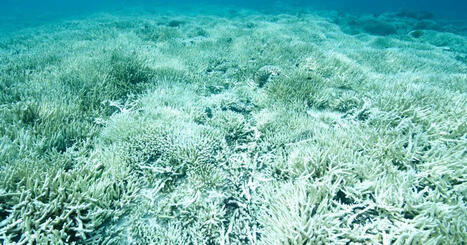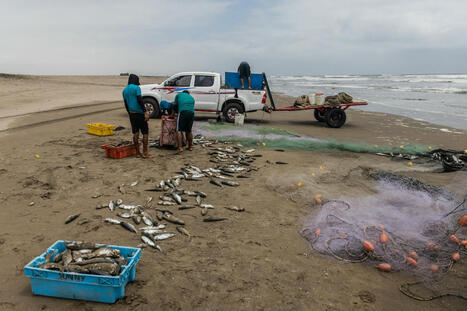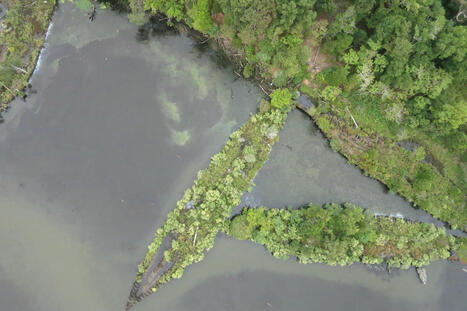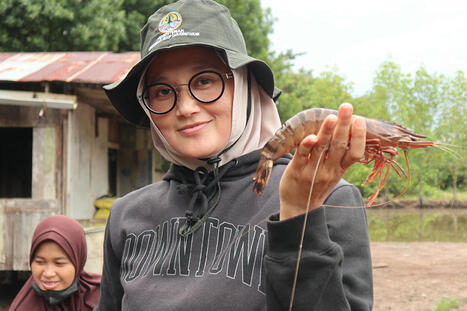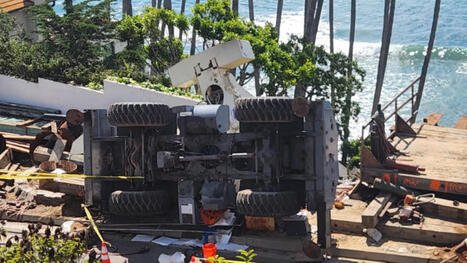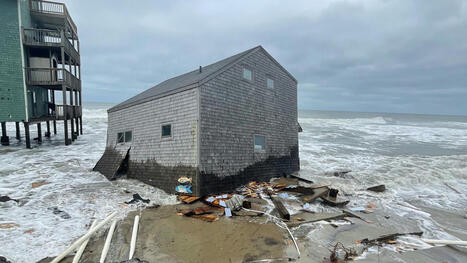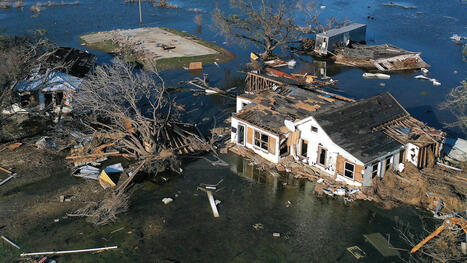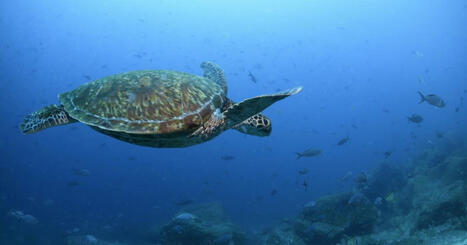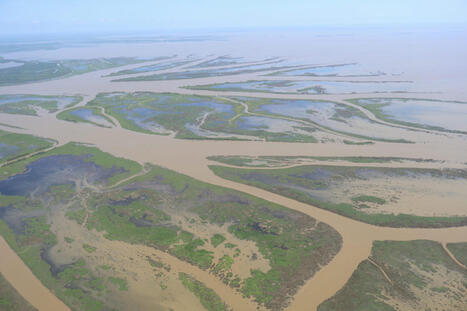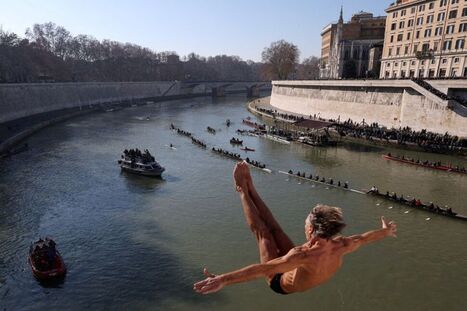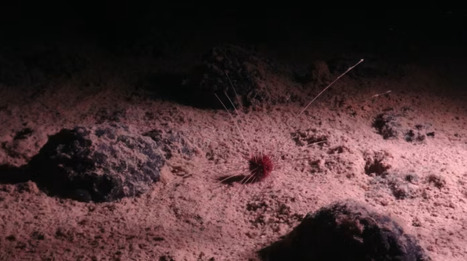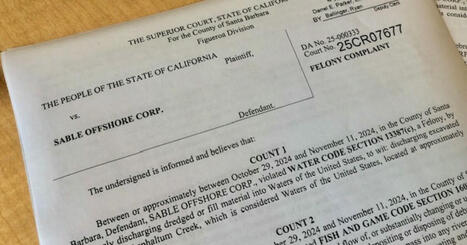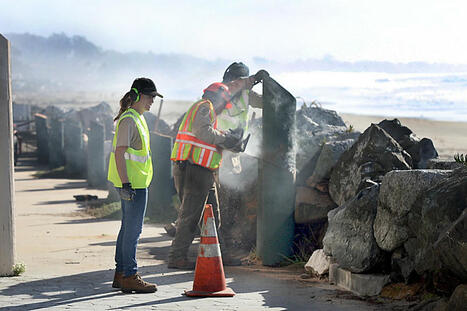Rancho Palos Verdes threatened by worsening landslide, with no injuries reported but trigger still unknown
Follow, research and publish the best content
Get Started for FREE
Sign up with Facebook Sign up with X
I don't have a Facebook or a X account
Already have an account: Login
Coastal management and restoration of our planet's coastlines with a particular focus on California, Louisiana and the Pacific. Emphasizing wetland restoration, aspects of agriculture in the coastal plain, fisheries, dealing with coastal hazards, and effective governance.
Curated by
PIRatE Lab
 Your new post is loading... Your new post is loading...
 Your new post is loading... Your new post is loading...
Jacqueline Pikey's comment,
October 2, 7:38 PM
Crazy how you don't see news like this on any mainstream media.

Mia Arzola Hinderliter's comment,
October 3, 1:03 AM
It's sad and alarming that seven out of nine of the boundaries have been crossed and nothing has been done. This is a serious issue and no world leader is talking about consequences.

Valerie P.'s comment,
October 6, 5:19 PM
Geez,... extremely worrying to hear. We've known for many years just how much coral reefs have been suffering due to rising temperatures and elevated levels of CO2 being dissolved into the ocean, because of anthropogenic emissions. I remember hearing even back ten years ago, the huge percentage of healthy coral the great barrier has lost because of this, and the resulting coral bleaching. This happening to the point that today, the reef has been reduced over 50% is so tragic. And (like Jacqueline said above!), little next to nothing is being done about. We lose these vital ecosystems, and that impact will reflect throughout the whole coast/ ocean. It seems issues like these are only taken seriously when we this harm finally spreads to affect us directly, or when given enough incentives. The truth is that we have so much resources and tools to start really helping and tackling larger-scale environmental issues. We just gotta rally governments on it somehow.
Jacqueline Pikey's comment,
October 2, 7:38 PM
This is so sad. Also why educating the masses os important

Hayden Fausset's comment,
October 1, 4:38 PM
That's really fascinating marine organism can live in that environment despite the chemical toxicity levels. It makes sense that they dwell in the weapons casing rather than in the uncovered explosive material. I would assume more chemicals leach from there. I wonder if this habitat can sustain life for long periods of time. Will the chemicals dilute and degrade over time, or will the organism adapt?

William H's comment,
October 2, 3:31 PM
This article was very interesting, as it provided insight into how living organisms can adapt to unlikely environments. I was surprised to learn that the green crab, Atlantic cod, sea anemones, starfish, and even certain species of worms are thriving on discarded munitions. However, this also raises serious questions about long-term chemical pollution, safety, and how we should manage these artificial habitats. While retrieving and safely disposing of the munitions might be ideal, the cost could be a major obstacle and it’s unclear what kind of artificial habitat, if any, could replace them. Would marine life be better off without these remnants of war, or should we let them be? This really highlights the difficult trade-offs between war history, ecology, conservation, and restoration. - Written by Yaiza Delgado

Mia Marie Uribe's comment,
October 5, 1:18 PM
The abundance of sea creatures found living on the ships versus the seafloor in this area was such a huge difference! I love that they're thriving! Fascinating that the toxic chemical concentrations in some areas were as high as what was previously thought to be deadly amounts and yet they continue to thrive on the hard surfaces of the warships.

Nicole Kouyoumdjian's comment,
September 30, 9:22 PM
I appreciate this way of including shrimp farmers as stakeholders and not excluding them from making their livelihoods, rather empowering them to make this more sustainable.
Esteban Roman's comment,
September 25, 12:55 AM
Going to be interesting to see how much and how quickly this number rises in the coming years.
Angelica Apelado's comment,
September 26, 12:20 PM
Good to hear that no one was occupying the house. Having a beach house sounds like its more trouble than its worth.

Mia Marie Uribe's comment,
September 26, 2:24 PM
It's funny to me that it's only 12 houses that have "fallen" into the atlantic because I remember seeing videos of houses collapsing into the sea and people were assuming it was hundreds all along the coast. Come to think of it, 12 seems like such a small number now.
Elise Sisk's comment,
September 26, 5:29 PM
Sea otters wrap themselves in kelp while sleeping! They are such cute animals.
|
ceridwen baker's comment,
October 2, 4:39 PM
all though a startling story feeding in to societal shark phobia, this is a relatively reassuring conidering the shark was so small and caused minor injuries. with how huge the ocean is and the fact that are wild and instinctual creatures that respond to the information they have. stastically all of us have been in the water with sharks and even shore line attacks are rare. a scary situation but also a reminder that certain activities come with risk but are not necessarily entirely dangerous. Mountain lions I feel are in a similar position of being ecologically important while also being dangerous in one on one human interactions; yet, simultanously having a very low attack/ lethality towards humans over all. I do wonder if climate changes and its dimensions of impact will cause an increase in human - wild life interactions.
Katheryn Galvez's comment,
October 3, 12:07 PM
The landslide is being shown as an isolated accident, adamantly stating there is no connection to the earlier landslide only 4 miles away. It feels like it is being said like this to avoid acknowledging the slope’s instability and the city’s potential liability. By insisting the cause is “unknown” and requiring homeowners to hire their own geotechnical engineers, officials appear to be shifting blame and costs onto residents while maintaining a narrative that keeps the city safe from any responsibility. This approach not only downplays long-term risks but may also create a false sense of security about future erosion and landslide hazards.

Hayden Fausset's comment,
September 24, 4:42 PM
It’s really unfortunate that some athletes got E.Coli from the water in the Paris Olympics. I wonder why races were allowed to take place if there were still enough contaminants in the water to get someone sick. Who decides how much contamination is a tolerable amount? I wonder if the same parameters that were followed in Paris will be the same for Rome. I hope there is less leniency, especially if the general public is allowed to bathe in the Tiber River.
Kailani Franklin's comment,
September 24, 9:00 PM
I'm curious what steps they took to help make the water in River Tiber swimmable again.

Valerie P.'s comment,
September 26, 1:20 PM
This is just so sad... the number of animals that unfortunately die as a result of wildlife-vehicle collisions is a larger issue than some people may initially believe. Roads are built to make travel quick and convenient, at the cost of wildlife and the habitats these roads cut through. It becomes a thing the animals must quickly learn to recognize as danger because the alternative is paying the price for wrong timing, and even, a resulting population decline in that area, which I hear is a huge issue for mountain lions since they have large roaming habits.
Angelica Chase's comment,
September 27, 2:50 AM
This is so sad, but it reminds me why that are building the wildlife crossing.

William H's comment,
September 24, 11:05 PM
It is so sad to see so much coral dying. When I went to Maui for ESRM 492, we saw so much bleached coral. I am hoping we can help find solutions like heat-resistant coral because I do not think we are lowering the ocean's temperature anytime soon.
Ryan Prem's comment,
September 26, 8:01 PM
It truly is unfortunate. Climate change will be the cause of such a beautiful faciliator of a great ecosystem to be gone.

Solomon Adams's comment,
September 24, 1:12 AM
Very informative article and applicable to our recent lecture on deep sea mining.
|






